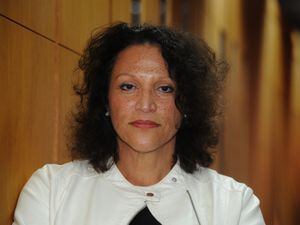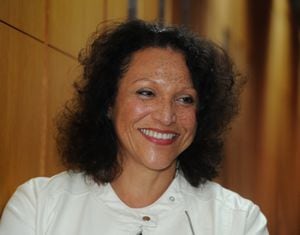Devolution can make this region roar
There are few political concepts that polarise opinion as much as devolution.

For some it brings unwanted bureaucracy under imposed leaders, while for others it enables regional growth by shifting power away from Whitehall.
Like it or loathe it, devolution appears to be here to stay in the UK, but the real question is how can the regions make the most of their new found freedom?
Deborah Cadman has been tasked with unlocking the key to growth in the West Midlands, having landed the job of chief executive on the region’s combined authority (WMCA).
The Brummie native has come back to her roots following a six year stint as boss of Suffolk County Council, where she is credited with steering the authority through the wreckage of budget cuts totalling £200 million.
But it was partly her exasperation at the scrapping of a planned devolution deal for Suffolk and Norfolk in 2016 that persuaded her to take up the post at the WMCA. “I am a firm believer in the power of the regions to develop and thrive without the Government making all the decisions,” the 54-year-old told me.

“I had a taste of it in my previous job and it was frustrating when we didn’t get it. There is masses of potential here in the West Midlands and I want to be part of realising that potential.”
Mrs Cadman concedes she has a monumental task on her hands to drive growth in a region that she says has not had the backing it deserves in the past.
The challenges are numerous. Improving transport, attracting new businesses, providing better quality jobs and training programmes, and the biggest house building programme in generations are all near the top of the agenda.
But she firmly believes the region can succeed. “I am committed to making the region the most vibrant in the UK,” she said. “I want us to be the best. I believe we are the next region outside London that is going to see significant growth.
“I think we can be that region that globally, investors want to come and have a piece of the action.” Perhaps unsurprisingly, she believes that securing sufficient funding is crucial to the success of devolution in the West Midlands.
It is all well and good having ambition, she says, but the grand schemes planned for housing and transport will only come to fruition if the right backing is there.
“The plans are there to build 210,000 homes, which is unrealistic at the moment,” Mrs Cadman said.
“Our projected need is 160,000, but the Government is saying we need to up our game.
“Now we can deliver that, but not if we haven’t got the land reclamation grant, or if I can’t sort out the marginal viability of some of these sites, or if I can’t attract investors. If you don’t give me the required tools then I’m never going to achieve the target.”
Mrs Cadman added: “I want this region to be a net contributor to the Exchequer rather than taking money out. We can’t just be passive in accepting what government and others give us, we have to roar and say: ‘This is what the West Midlands wants and deserves’.
“If you give us this, then this is the contribution this region can make to UK PLC. We have to be loud, bold and audacious in expressing what we need for the region.”
Mrs Cadman is well aware that there is still a fair amount of opposition to devolution across the region, and she insists that the WMCA will provide value for money in the long term.
She said: “The most important thing for me is that I don’t create a massive, monolithic organisation,” she said. “We are not taking over councils, we are here demonstrate that by being a united voice we can do far more and have far more influence as a region.
“There is this anxiety that we are going to create some massive bureaucracy that’s going to deliver all the public services in the West Midlands. This is absolutely not the case.”
Mrs Cadman describes herself as ‘a glass half full woman’, who would rather devote her energy to solving problems rather than complaining about them. She describes Brexit as ‘a fantastic opportunity’ that the region can take advantage of. “People need to see that rather than just saying, ‘oh, this is so terrible’,” she added.
She also says the region’s Conservative Mayor, Andy Street, is ‘a big plus’ for the West Midlands. “He has an unrelenting belief and commitment,” she said, adding: “I have never worked with an individual who is so passionate about doing the right thing.

“We have a shared belief that economic growth should be inextricably linked to the need to develop communities.”
Cynics might suggest that ‘inclusive growth’ across the region is more of a pipe dream than a plan with genuine potential. Mrs Cadman has her work cut out if she is to prove the naysayers wrong.





